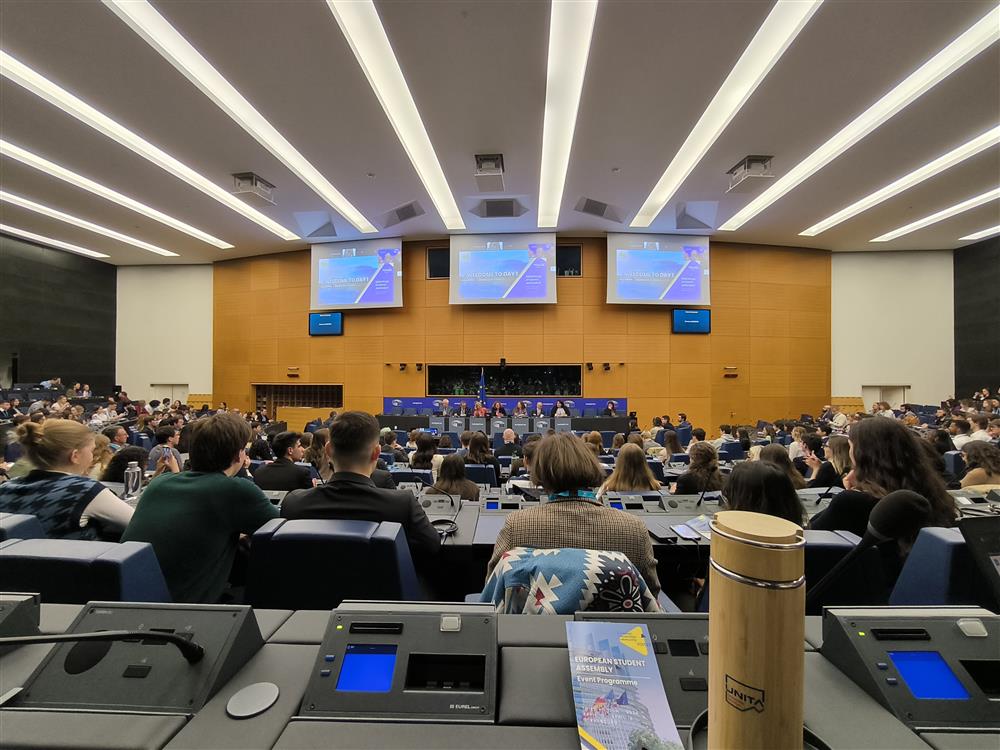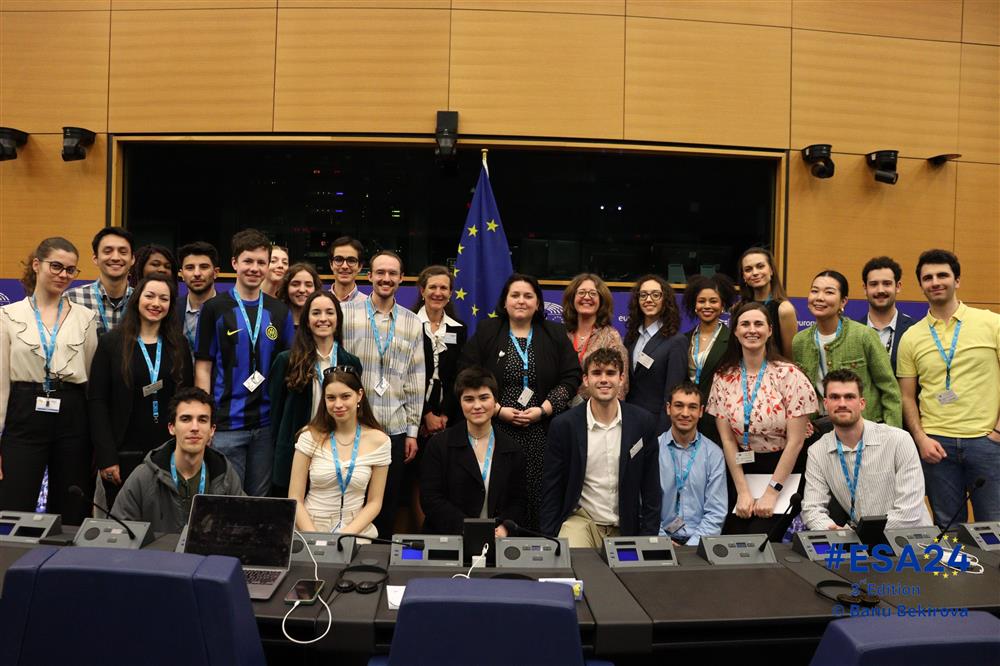ESA 2024 has proved to be a valuable opportunity to confront the most pressing European issues, interact with different cultures and help shape the future of the European Union. This report compiled by the UNITA students who participated reveals the essence of the event, highlighting its European added value, overall evaluation, and why participation in such experiences is crucial for students.
European added value
The program included a rich set of activities designed to address critical challenges of the European Union. Through group meetings, debates, and workshops, participants explored topics ranging from promoting civic engagement in elections to combating climate change and regulating AI. Each proposal presented during the debates embodied the spirit of European collaboration, emphasizing the collective effort needed to address complex issues that transcend national borders.

The experience at the European Parliament provided a platform for meaningful dialogue and collaboration among students from diverse backgrounds. The interactive nature of the event facilitated the exchange of ideas, promoting critical thinking and problem-solving skills, as well as a sense of European identity and solidarity.
Participants not only gained a deeper understanding of European affairs, but also sharpened their communication and negotiation skills.
The opportunity to engage directly with politicians and experts offered valuable insight into the complexities of decision-making processes at the European level.
Why students should participate
Participation in ESA2024 offered participants (251 total students from 41 European alliances) a unique opportunity to broaden their horizons and develop a deeper appreciation for the European project.
By engaging with peers from different cultural backgrounds, participants were able to experience firsthand the richness and diversity of European society. Interacting with people with different perspectives fostered empathy and tolerance, nurturing the spirit of cooperation essential to building a united Europe. In addition, involvement in these experiences provided students with the skills and knowledge needed to become active, informed citizens who can contribute meaningfully to society.
Human contact and cohesion
The event fostered meaningful human contact by bringing together students from across Europe, enabling them to create bonds and networks that transcend national borders.
Through collaborative activities and social interactions, participants developed a deeper understanding of each other's cultures, traditions and values. This cross-cultural exchange not only fostered mutual respect and appreciation, but also highlighted the interconnectedness of European societies by fostering a sense of cohesion and solidarity in addressing common challenges.
Why the EU and this experience must grow together in the future
In conclusion, the ESA2024 experience served as a catalyst to foster European engagement, promote intercultural understanding, and empower the next generation of European leaders. By embracing diversity, dialogue and cooperation, the event embodied the fundamental principles on which the European Union was founded.
Reflecting on this enriching experience, we are reminded of the importance of active citizenship and the transformative potential of collective action in shaping a more inclusive and prosperous Europe.

UNITA students at ESA 2024
- Souad Youb, Università di Torino, Panel 1 - European election year. How to tackle the lack of (and dis-) information and encourage citizens’ engagement in the upcoming elections?
- Simona Cavallo, Università di Torino, Panel 2 - Greener is better. How can the EU establish a responsible growth in the context of climate change?
- Francesco Curiale e Riccardo Negrisoli, Università di Torino, e Lujayn Al-Khasawneh, Università della Savoia Mont Blanc, Panel 3 - Cohesion through budget policies. How can the EU budget policy take part in strengthening cohesion amongst its Member States?
- Joakim Giske Tvete e Mattia Ribetto, Università di Torino, e Rita Cartaxo, Università di Beira Interior, Panel 4 - Seeking a better future in the EU. What strategy should the EU adopt to guarantee a treatment with dignity of migrants from outside of the Union?
- Laurențiu-Florin Dobra, West Università di Timisoara, Panel 5 - EU in the world. How can the EU be a more responsible actor inglobalisation through its leadership?
- Pedro Contín, Università di Saragozza, Panel 6 - EU Artificial Intelligence Act. What strategies could be implemented to maximise the benefits of AI while addressing its challenges?
- Giordana Gallina, Università di Torino, Panel 7 - European heritage. How can the EU effectively coordinate with institutions the promotion of its heritage and ensure access to culture to all?
- Tommaso Pietrosanti e Mayte Gutierrez, Università di Torino, Panel 9 - A place for everyone. How can higher education institutions be a place of opportunities for all?
- Matilde Curiale, Università di Torino, Panel 11 - Addressing euroscepticism. How to build a stronger and more united EU in the face of the rise of euroscepticism?
ESA24 recommendations are finally published. The document shows all the policies written and voted by more than 250 students, last April in Strasbourg.
You can find the full document and all the policies here: https://lnkd.in/efYnEn5K